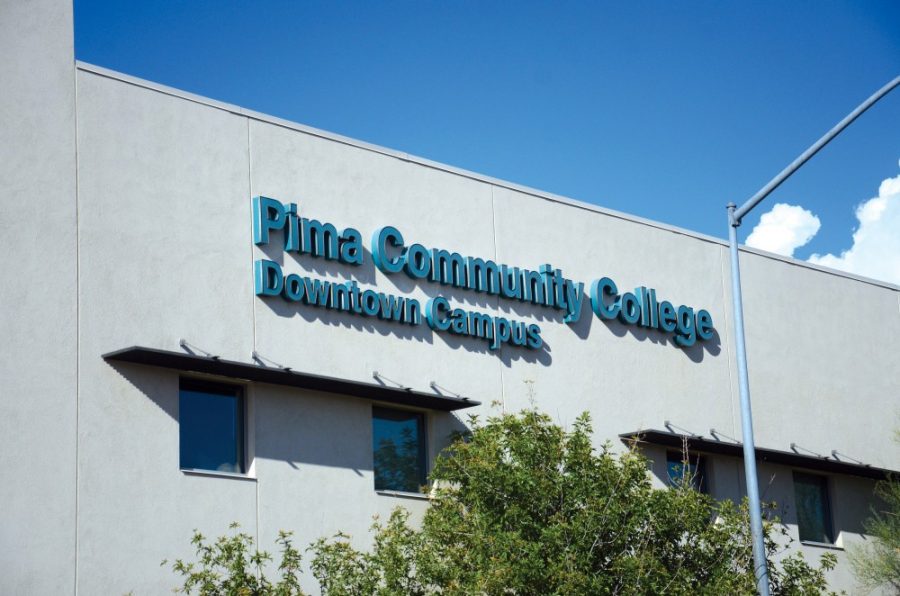Graduation is the point at which young adults end one phase of life and begin the next. While it is no doubt a special time in a student’s life, it’s often terrifying. Today’s graduates are graduating with more debt than any other generation and going into a workforce that employs them less than any other working-age group.
Reality is such that today’s graduates may need to fight harder than their parents or grandparents to secure a worthwhile position for themselves within the workforce. Before they even graduate, millennials must use all the tools available to them to launch their careers.
Gone are the days of earning a degree and moving easily into some readily available position back in your hometown. What baby boomers considered above and beyond back in the day has become the new normal.
Students at the UA are well aware of their current predicament and employ various techniques in working ahead at securing careers for themselves.
Heather Francisco, a senior studying accounting and management information systems, used contacts from her summer internships to help her secure a post-graduation position.
“I do have a job lined up after graduation,” Francisco wrote. “From my internship, I was offered and accepted a full-time position.”
This early success is not enough for Francisco, however. She still plans to make herself as appealing as possible to the highly competitive job market.
“I deferred the [job] offer for a year so that I can continue … to pursue a master’s in accounting,” Francisco wrote. “As the business world grows more competitive, a master’s is becoming the new undergraduate degree.”
This level of foresight is often mandatory for graduating millennials. While most would be happy to have a job lined up at all, ensuring that skills continue to develop post-graduation is also essential, as a pre-graduation job offer can be rescinded just as quickly as it is given.
If foresight is essential, students agree that networking is key. In a report for Time, CEO Stéphane Le Viet recommended using networking to help compensate for lack of experience.
“Millennials must learn to use social media to professionally connect and build relationships with people and organizations in their desired industry,” Le Viet wrote.
The much-maligned catch-22 of needing experience for a job but not being able to get experience because there are no jobs must be combated somehow. Finding contacts within a student’s chosen industry can do just that.
An internship coordinator or mentor who can vouch for the student’s intelligence, work ethic and maturity is often the battering ram needed to get past the gates of employment.
Fine arts students are on the receiving end of more than a few cruel jokes in today’s job market. Networking is perhaps the only way toward gaining employment within their profession.
Students with art degrees incur more debt on average than any other major group. They also typically earn much smaller salaries than their peers. For fine arts students, studying what they love comes at a high price.
Carly Passovoy, a UA senior studying film and television, wrote about using Los Angeles contacts as her primary avenue of looking for post-graduation employment.
“Every school break, I [keep] in touch with my contacts and establish professional relationships,” Passovoy wrote. “This way, they think of me when they find openings.”
If nothing else, fine arts students must try and ensure that everyone they know in their desired business is simply aware of the fact they are looking for a job.
UA creative writing senior Elliot Brietta speaks to this as well.
“The big thing though, is to make contacts and keep checking back in with them, since in the film/TV industry, people take who is in front of them when they need someone,” Brietta said.
Clearly these students are aware of what needs to be done to gain employment in a difficult field. While the level of networking required takes a certain amount of bravery and ingenuity—it’s not the easiest thing in the world to cold call production companies—millennials do have their one eternal advantage: technology.
Finding names and even contact information for relevant individuals is surprisingly easy if a student is adept at navigating company web pages. Even better, a well-placed phone call to an unsuspecting building phone operator can lead the cunning student right to a major executive’s office line.
All of this pain-in-the-assery is still generally worth while. The Institute of Education Sciences found that millennials with a degree of any kind in 2014 were 13 percent more likely to find work than those without. While that may seem like a small advantage, keep in mind that students need all of the help they can get in the current job market.
Debt must be a consideration, however. A 13 percent higher rate of employment pales in comparison to $200,000 in student loans, plus interest. While the national average is $35,000, the 200K-ers are unfortunately all too common.
No degree is providing commensurate advantages for that level of financial debilitation. It’s already a sad state of affairs when $35,000 of debt is the norm. Exit loan counseling for graduating students will quickly teach that such a number requires monthly payments of hundreds of dollars for years before it’s paid off.
Nothing worthwhile comes easily.
Students will need to climb figurative mountains if they want to be working in positions they find personally satisfying.
“As important as it is to have backups and keep your options open, never doubt yourself,” Francisco wrote. “Always apply for your dream internship [or] career, because you have nothing to lose.”
Some may find this view naive in light of the many obstacles set before graduating millennials, but it’s an attitude that could help many find success. Among all the negatives, students can at least cling to the fact that they are young with a lifetime of decision making ahead of them.
Follow Greg Castro on Twitter.








